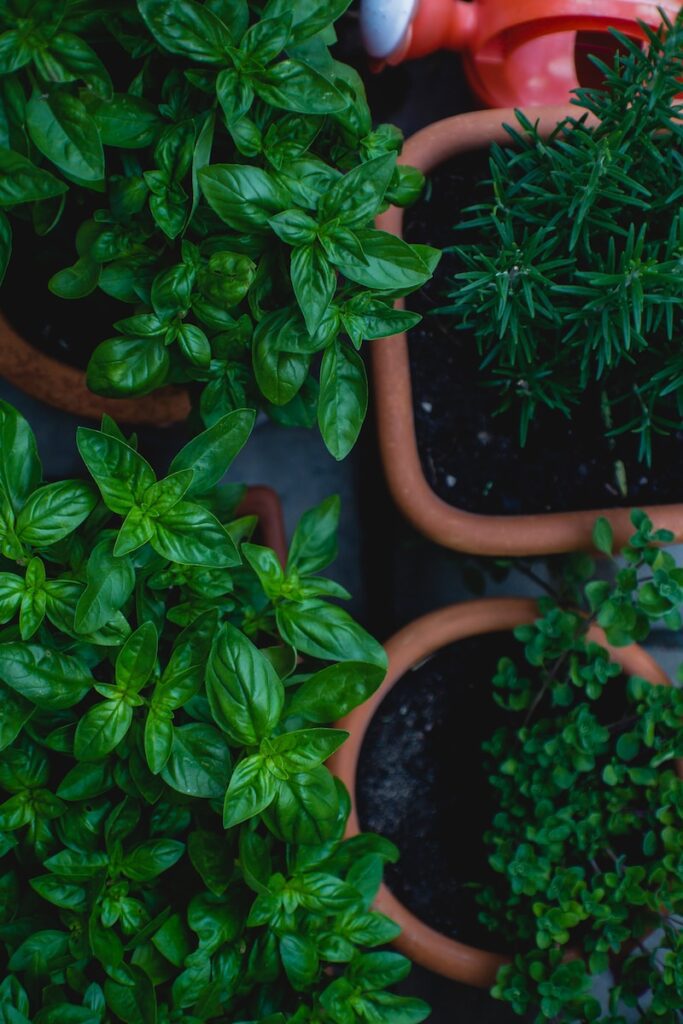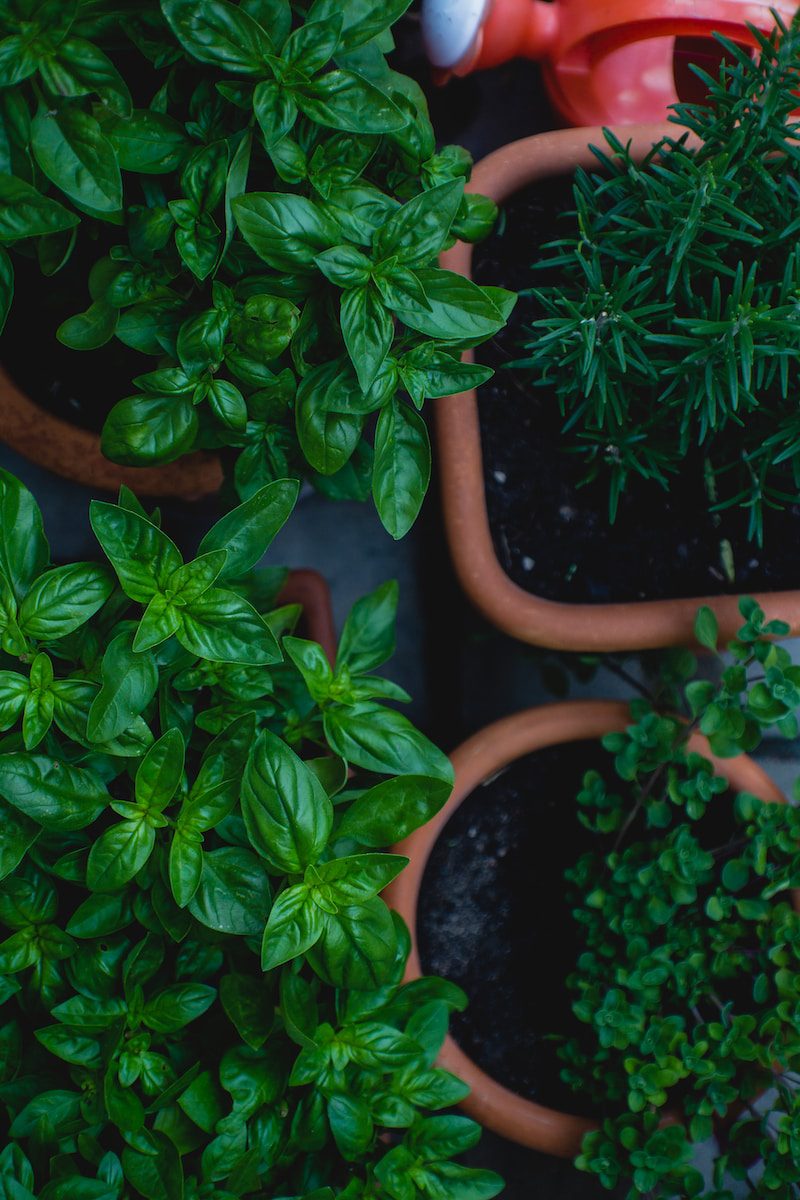7 Essential Italian Herbs
There are seven amazing herbs in an Italian herb garden that gives most Italian cuisine its rich, scrumptious flavors. I haven’t met anyone who doesn’t cook Italian dishes at home. Don’t you agree that it’s more practical and convenient to grow these plants in your garden so you’ll always have a flavorful and fresh supply every time you need to cook tasty Italian meals?
Do you know that the most popular and the tastiest dishes come from Italy because they use herbs from their Italian herb garden? In fact, records in the culinary industry show that some of the best dishes in the world come from Italy.

Let’s go over the 7 essential herbs found in an Italian herb garden, and their uses and benefits:
1. Basil is one of the most commonly used herbs. It is said that its distinct flavor is the soul of Italian cuisine. It is also beneficial to your garden — If you plant Basil with tomatoes and peppers, it will help improve the flavor of these plants. Basil is also a known repellent to mosquitoes and flies. Grow it with thyme, as they make a perfect pair, growing together.
2. Parsley is known in the culinary industry as an excellent flavoring too. In ancient times, many people use Parsley as breath mints. Very nutritious, eating parsley raw also helps eradicate bad breath. This is why parsley is used as a wonderful garnish.
3. Oregano on the other hand is used as decorative and has a distinct flavor that can complement many meals. This herb delivers the best flavor when harvested as soon as its beautiful purple flowers start to bloom. It also has great medicinal properties, and is widely used as an effective anti-oxidant, anti-fungal, as a digestive aid, and for relieving pain and inflammation.
4. Fennel is another great Italian herb that is used in making Italian sausages. This perennial plant should be replanted and divided every two to three years, because it loses its flavor when it reaches maturity. Fennel leaves are used in soups, condiments and sauces, and its oil is used to flavor candy, liqueurs, medicine and fish. It is used to make soaps too!
5. Another perennial plant that is noted for its numerous culinary contributions is Rosemary. It is very sensitive to frost and is known to attract bees. It’s a kind of shrub herb plant with color blue flowers. Use it as a gorgeous ornamental plant or as a welcome culinary flavoring.
6. Garlic is one of the most popular herbs in any garden and is a basic ingredient in many Italian dishes. I’m sure of one thing – if you don’t grow garlic in your garden, it cannot be considered as an Italian garden! Garlic can thrive with very little attention. Once harvested, they can be pickled, frozen, or stored in the fridge for future use.
7. Sage is a popular herb that graces countless Italian recipes, ranging from meats to salads. If you want to grow sage, I suggest that you keep your plants well trimmed so that you can take advantage of the new shoots – the most delicious plant part. Harvest these plants after they have bloomed. Sage is also known for its health benefits – it is a great memory enhancer, has anti-inflammatory properties and acts as a powerful antioxidant too!
There are other herbs that can serve as a nice addition to your Italian herb garden but starting off with these 7 essential herbs is a great idea since they are used in a wide variety of recipes.
The Benefits of Adding Organic Matter and Compost to Your Soil
If you want your garden to be healthy and productive, it’s important to start with healthy soil. One of the best ways to improve the quality of your soil is by adding organic matter and compost. Here’s a look at some of the benefits of adding organic matter and compost to your soil.
Improved Nutrient Content
Organic matter and compost help to improve the nutrient content of your soil. This is because they add essential nutrients, such as nitrogen, phosphorus, and potassium, which are vital for plant growth. Adding organic matter and compost to your soil can also help to improve the overall structure of your soil, making it more loose and easy for plant roots to penetrate.
Improved Water Retention
One of the biggest benefits of adding organic matter and compost to your soil is improved water retention. This is because organic matter helps to hold water in the soil, making it available for plants to use when they need it most. This is especially beneficial during times of drought or extended periods of dry weather.
Increased Soil Fertility
Adding organic matter and compost to your soil can also help to increase its fertility. This is because organic matter helps to promote the growth of beneficial microorganisms in the soil, which can help improve plant growth. Additionally, organic matter and compost can help add essential nutrients back into the soil that may have been depleted by previous crops.
As you can see, there are many benefits to adding organic matter and compost to your soil. If you want your garden to be healthy and productive, be sure to add these important ingredients!
How to Plant and Care for Your Italian Herbs
Growing your own Italian herbs can be a rewarding experience. Not only do you get to enjoy the delicious results of your labor, but you also get to control how your herbs are grown and cared for. Here are a few tips on how to get started.
Choose the Right Location
Herbs need plenty of sunlight to grow, so choose a spot in your yard or on your windowsill that gets at least six hours of direct sunlight each day. Once you’ve found the perfect spot, it’s time to prepare the soil.
Prepare the Soil
Herbs thrive in well-drained soil, so be sure to loosen the soil and remove any rocks or debris before planting. You can also improve drainage by mixing in some sand or organic matter. Once your soil is ready, it’s time to plant!
Plant Your Italian Herbs
When planting your herbs, be sure to give them plenty of space to grow. If you’re planting multiple herbs in one container, make sure each herb has its own individual pot. Once you’ve planted your herbs, water them regularly and fertilize them every two weeks with an all-purpose fertilizer.
With a little care and attention, your herbs will thrive! Remember to choose a sunny location, prepare the soil before planting, and water and fertilize regularly. With these tips, you’ll be enjoying fresh herbs in no time!
The Best Time to Harvest Herbs
Do you love the taste of fresh Italian herbs in your cooking? Growing your own herbs is a great way to have them on hand whenever you need them. But when is the best time to harvest them? Read on to find out!
Harvest the herbs when they are mature, but before they flower. This will give you the best flavor. Most herbs are ready to harvest 4-6 weeks after planting.
To dry your herbs, tie them in small bundles and hang them upside down in a dark, dry place. Or, lay them out on a screen or paper towels in a single layer and set them in a warm, dry place out of direct sunlight. Once they’re dried, store them in an airtight container in a cool, dark place.
If you want to freeze your herbs, wash and dry them thoroughly. Chop them finely and then put them into ice cube trays or freezer bags, pressing out as much air as possible before sealing. Label and date the containers, and then store them in the freezer for up to 6 months.
Now that you know when to harvest your Italian herbs, get out there and start picking! Fresh (or frozen) herbs can really take your cooking to the next level. Bon appƒÂ©tit!

